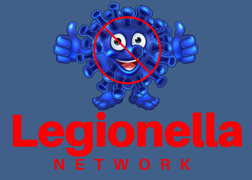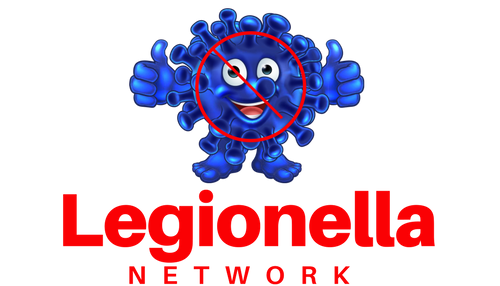What is Legionellosis also known as Legionnaires’ disease?
There are two distinct forms of the disease, the first is Legionellosis / Legionnaires’ Disease that is considered the more severe form of infection and includes pneumonia. The second is Pontiac Fever that is considered a milder illness. Pontiac Fever usually clears on it own, but untreated Legionnaires’ Disease can be fatal especially to persons who are elderly or have immunocompromised conditions. Legionellosis / Legionnaires’ Disease is a bacterial infection caused by the bacterium Legionella Pneumophila. The bacteria become airborne through water mist and vapor and enters your body by either inhalation or aspiration to your lungs thereby causing a bacterial infection.
How do I prevent Legionnaires Disease?
Having effective chlorine levels is required in a building water system. Special risk management protocols should be established to contain bacteria. Public notifications must be required during known and unknown disruptions. Also, comprehensive testing should be conducted to determine root causes and advance our understanding of bacterial threats. There are preventive steps that can be taken in our homes and the buildings that use water, including special handling following disruptions to the public water system, eliminating stagnant water, increasing water temperatures and developing water management programs.
If you suspect there is legionella in your water system it is strongly advised to seek professional help in dealing with an outbreak.
How do outbreaks of Legionellosis occur?
Outbreaks of legionellosis occur when person's breath mists that come from a water source (e.g., fountains, CPAP Machines, whirlpool spas, showers) that are contaminated with the Legionella bacteria “Legionella pneumophila”. Persons can be exposed to these mists anywhere, such as their homes, workplaces, local hospitals, or even public places. The consensus is that Legionellosis cannot be passed from person to person, meaning it is not contagious. In addition, there is no supporting evidence at this time that substantiates claims of contamination from auto air conditioners or household window air-conditioning units.
Who can get legionellosis?
People of any age may get Legionnaires’ disease, but the illness most often affects middle-aged and older persons, particularly those who smoke cigarettes or have chronic lung disease. Also at increased risk are persons whose immune system is suppressed by diseases such as cancer, kidney failure requiring dialysis, diabetes, or AIDS. People who take drugs that suppress the immune system are also at higher risk. Pontiac Fever most commonly occurs in persons who are otherwise healthy. Legionnaires' disease is sporadic and can be a problem in hospitals and nursing homes, where germs may spread easily and people are vulnerable to infection.
Legionnaires disease symptoms?
Symptoms of Legionnaires’ disease may include: fever, chills, dry cough, muscle aches, headache, loss of appetite, and diarrhea. If you catch legionnaires disease, you can experience a cough, fever, chills, shortness of breath, muscle aches, headaches, and diarrhea.
What is the treatment for L. Pneumophila?
Antibiotics are prescribed for people with Legionnaires’ disease, and hospitalization is often required. People with Pontiac fever usually recover without treatment in 2 to 5 days. Although legionnaires' disease primarily affects the lungs, it can cause infections in wounds and in other parts of the body, including the heart.
How likely am I to get Legionnaires disease?
There are between 8,000 to 18,000 cases of Legionnaires disease each year. It is the cause of two to nine percent of pneumonia cases in hospitals but most cases go undetected because they are not diagnosed or reported. The majority of cases are linked to drinking water systems when not properly managed or treated. It can also occur any time of the year but it's more prevalent during summer and fall when water is warmer. A few people have contracted legionnaires' disease after working in the garden or using contaminated potting soil.
How common is Legionnaires disease?
Legionnaires disease is pretty common there are 8,000 to 18,000 cases of the disease in the United States each year and the number is continuing to rise. There are an estimated 5,000 people who get hospitalized with Legionnaires disease each year as well. Legionnaires go unreported most of the time because it is diagnosed with pneumonia.
How likely am I to get Legionnaires disease?
Anyone can get Legionnaires but it mostly affects middle-aged people and those who smoke or have a chronic lung disease. People who have a suppressed immune system and pre-existing conditions such as diabetes, AIDs, Cancer, or have kidney failure and need dialysis. Also, those who take medications for a suppressed immune system are most at risk.
Can Legionnaires disease become fatal?
Yes, Legionnaires can become fatal if not properly diagnosed or treated. Legionnaires is a severe form of pneumonia which is lung inflammation caused by infection. Pontiac fever is a milder form of the infection and will usually clear on its own.
Where could Legionella live in my home?
Legionella can live in your water faucets, air conditioning equipment, water heaters, plumbing systems and basically any place that houses or transports water within your home.
Is there a vaccine for Legionella?
There is no vaccine for Legionella but if diagnosed with Legionnaires disease there are antibiotics that you can take to clear your body of the infection. If you suspect that you have come in contact with Legionella immediately seek the advice of your doctor.
How do I prevent my family from being exposed to this disease?
The best way to prevent your family from being exposed to Legionella is to have a properly maintained and regulated watering system in your home. It is advised that you have professional help to ensure that you maintain a clean and uncontaminated water system for your home.

